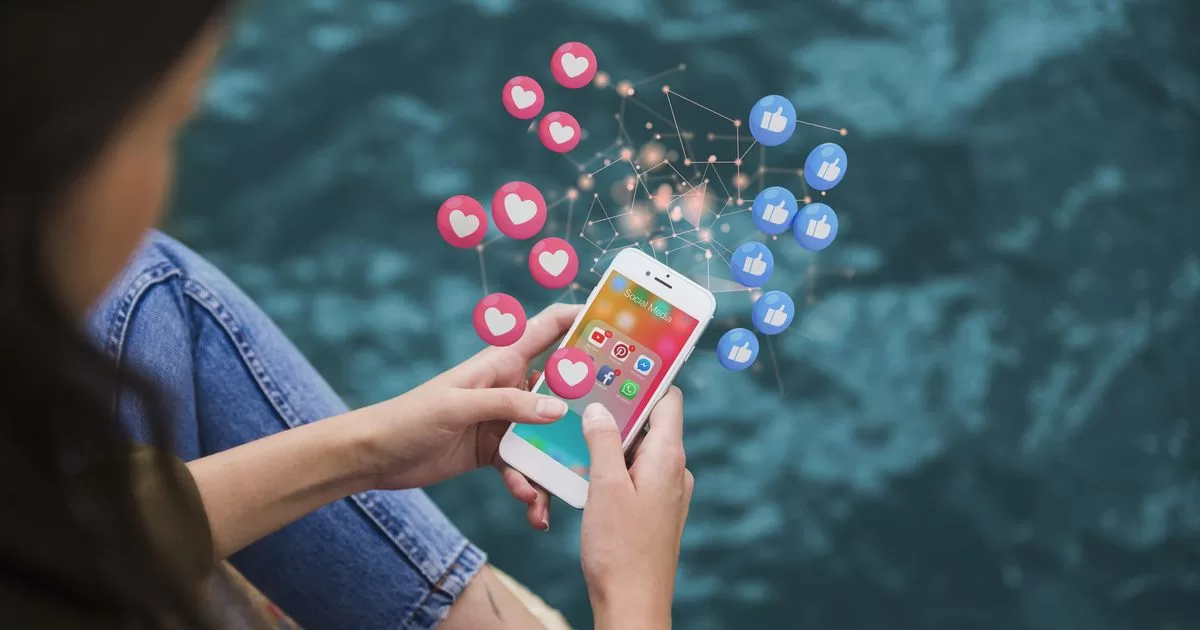The governor’s rejection was expected last time, when the governor indicated that the text approved by the state Parliament still needed modifications.
The law that would restrict the use of social networks in minors, it would not only prevent children and adolescents from having access to those digital platforms, but would also provide options to cancel their existing accounts.
The bill was promoted as an “additional layer of protection against the negative effects associated with social media use,” such as cyberbullying and exposure to inappropriate content. The initiative, after being debated and approved, was only awaiting Governor DeSantis’ signature for its implementation.
Although the proposal had broad legislative support, it has also generated a heated debate about the necessary balance between the protection of minors and individual freedoms.
Some legislators and sectors of society have shown their custom supportdescribing it as relevant to safeguard the mental and physical health of minors.
Others have criticized it as possible “government overreach.”under the argument that decisions about the use of social networks should be the prerogative of parents and not the State.
“Negative network effect”
The legislation would require social networks to prohibit anyone under 16 from creating an account on those platforms and was intended to require a third party to be used for age verification services.
In the opinion of Rod Soto, a technology and cybersecurity specialist, who declared himself in favor of the regulations, “there is a palpable negative effect on social networks,” after which he cited “certified studies that demonstrate this.”
“We see young people with low self-esteem, suicidal thoughts, bullying, so these types of factors are amplified on social networks by boys who are not mature enough to know the consequences of what they publish on the internet,” he stated.
He said that, although the implementation of the new law would create “a framework that gives power to the State,” it is “necessary to tell Instagram, Facebook, even Tiktok that they can be sanctioned with fines if they do not protect minors.” ”.
The initiative entails an exhortation to the companies that operate these virtual communities to cancel the accounts of users under 16 years of age in the state and, in addition, stipulated financial sanctions for those companies that did not comply.
As explained by the expert, “social networks do not help many of these boys, on the contrary, what they do is worsen any type of symptoms of depression or aggressive behavior.”
Soto mentioned the example of a boy whose photograph was published on social networks, without his consent and that of his parents, “and now this person has suffered the consequences of the irresponsible use of technology.”
“Always supervise them”
Science, through the branch of psychology, can provide important suggestions on the use of social networks. For this, DIARIO LAS AMERICAS He also consulted child psychologist Mónica Gilbert, who is inclined to use these platforms under the supervision of parents.
“Social networks They have an impact on children, and also on adults, in the cognitive, emotional and social part. I think it is important for parents to always be talking to their children, to always supervise them,” she commented.
Even so, Gilbert maintains the thesis that “it is a little impossible to deny a child access to social networks”, since “they will almost always find a way to join” these virtual communities.
He explained that social networks generate “a lot of dopamine”, which can lead to an “addiction”. From his point of view, “we cannot let it become excessive use” and he reiterated how necessary “vigilance and not letting (children) spend most of their time on the networks.”
He put into context psychological studies that show that when young people spend a lot of time on digital networks, “they can have emotional and social deterioration, although this does not happen to all children.” She recommended parents include their children “in other activities to help them have healthier and better socialization.”
“Government interference”
For his part, Democratic political analyst Tomás Kennedy questioned the promoters of the measure, after considering that “this is a state that professes to defend the rights of parents, in how they want to deal with their children.”
“If they (minors) want to access certain social networks or not, I don’t know why the government has to be getting involved in that. and creating these rules that have to be established by parents,” he considered.
He argued that “there are many children who depend on social networks to create friendly relationships, obtain financial opportunities, and the government does not have to get involved.”
Meanwhile, Kennedy criticized the Democratic congressmen who supported the initiative. “This to me is disappointing,” he stressed, while expressing doubts about how companies that operate social networks could be forced to comply with the legislative provision.
He anticipated that “very expensive lawsuits”, that “we taxpayers will have to pay out of our pockets to “defend these types of laws that are a distraction.” Meanwhile, lawmakers “are not focused on the cost of living that Floridians are dealing with,” he said.
DeSantis position
Although legislators made various adjustments to the proposal during the corresponding debates, Governor DeSantis did not accept the idea and had repeatedly refused to support it.
“I don’t think (the bill) is right yet,” said DeSantis, who despite believing that “it is harmful for them (children) to be on some of those platforms that have certain functionality that is addictive,” he also estimates that “parents must play a role in this”.
The initiative had the support of the majority of Republicans in both the Senate and the House. For some political analysts, the regulations have become a kind of ‘tool for measuring forces’ between the state executive and legislative branches.
In fact, some wonder if DeSantis would have the same influence today in the Florida Congress and its Republican caucus, after he returned to Tallahassee with a major defeat in the presidential primaries when he faced former President Donald Trump.
The House passed the bill with a vote of 108 to 7a few hours after the Senate adopted it by 23 to 14. Both legislative bodies have a Republican majority.
DeSantis’ arguments
The governor said that parliamentarians are already working on a new version that gives more decision-making power to parents, their biggest request regarding the previous project.
“Protecting children from the harms associated with social media is important, as is supporting parental rights and maintaining the ability of adults to express themselves anonymously,” DeSantis wrote on social network X. “I hope that the new bill recognizes these priorities and becomes law soon,” he added.
The project approved by legislators was aimed at those platforms that track the activity of their users, allow content to be uploaded and have a design with addictive characteristics.
Its promoters denounced the dangers of networks for the mental health of young people, as well as their use for harmful activities such as cyberbullying.
Legislators opposed to this initiative argued that, although social networks can be dangerous, it is parents and not authorities who should supervise their use by minors.
DeSantis has defended on numerous occasions that parents should have greater control over decisions that affect their children, for example in education.
During his tenure, Florida has passed laws to restrict the teaching of issues related to sexual orientation and gender identity.
Some critics claimed that the bill vetoed by DeSantis would violate the First Amendment of the US Constitution, which guarantees freedom of expression.
DeSantis himself warned in January that similar texts in other states had been blocked in the courts.
(email protected)
@danielcastrope







